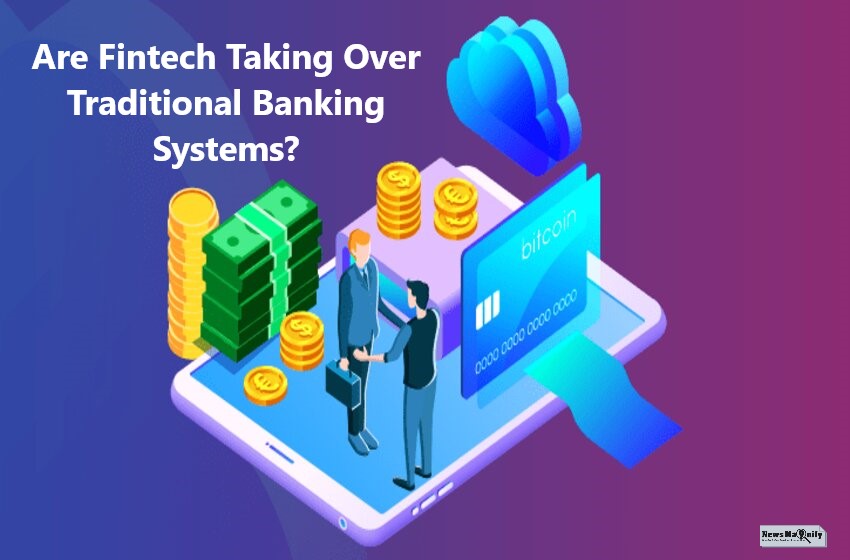
Is The Bank Fintech Challenge Replacing The Traditional Banking System?
- Business Finance
 Andrey Ivanov
Andrey Ivanov- July 25, 2021
- 0
- 8 minutes read
The traditional banks are encountering an existential threat from the Fintech banks in every dimension of their business that is ranging from corporate lending to the payment services. Innovation in technology has reshaped the financial markets for hundreds if not thousands for years after years. Advancement in metallurgical engineering resulted in the formulation of metal coins and the discovery of the printing press facilitated the circulation of currency notes. The revolution in electronics resulted in the creation of ATMs. So the list is endless. Let us have a look at the bank Fintech challenge that is currently prevailing in the financial sector.
But there is something different about the latest disruption. Instead of financial firms utilizing technology to formulate innovative products, tech firms are now planning to enter the banking arena directly. This can replace the traditional banking scenario and this is the bank fintech challenge we are talking about.
Bank Fintech Challenge 2021: Will Banks Become Obsolete?
A deeper retrospection at the cost of the traditional banking sector makes it obvious that it was getting ripe for disruption for quite some time. According to studies, the cost to maintain financial services is high, nearly 2% of the value of the asset on an average. Moreover, this cost has stayed the same for centuries despite all developments in technology during this period. Still, there is a financial technology disruption in the banking sector. So now you may wonder why didn’t the banks pass these benefits to their users by lowering down the transaction fees?
How Fintech Is Disrupting Traditional Banking?
Let us look at the impact of fintech on banking. The banking market is an imperfectly competitive market and thus justifies this behavior. It is true that the regulatory restrictions enable the entry of new players in the financial market, which is really a hard job. This provides the incumbent banks a lot of power in the market. With greater power of the market comes greater rents that the banks have enjoyed for many years. But imperfect competition does not explain the complete story. Banks enjoyed extra rents from having the access to data that others could not have. Along with that they also benefited from the implicit and explicit guarantee by the government that makes a trusted counterparty for any financial transaction.
As its job, the banking business deals with all about solving information issues among savers, borrowers, and other market participants. For instance, on the credit or borrowing side of the business, the bank will require good information to know who to lend, when to lend, and when to intervene in the business of a troubled borrower. On the payment side of the banking business, banks require accurate and fast information on the integrity of the receiver of the payments. Detecting debit card and credit card fraud is also a trust and information issue. Banks have always been enjoying a monopoly over information as it was difficult to process accurate information without involving an intermediary.
However, the revolution in big computing and data power has altered the monopoly of information in the past decade. For instance, Square Inc. has altered the process of collection of financial information for small businesses across America. This is another bank fintech challenge.
These hindrances corresponded with the 2008-09 global financial crisis which primarily impacted both the supply and demand side of the entire banking business. On the demand side, the consumers lost their trust in the financial system. According to the annual Gallup polls, the confidence of the Americans in the financial banking system declined to an all time low after the prevailing financial crisis and since then it has remained low. Simultaneously innovation in technology started to replace the trust for institutions which provided the tech firm a fantastic window of choices to enter the financial sector. Companies like PayPal grabbed the opportunity to provide payment services at a faster speed and a lower price. The traditional banks found it hard to compete as they were still figuring the regulatory burden that was caused post crisis. As a result of which the banking business changed forever.
What Can Be Done To Survive The Bank Fintech Challenge?
There are certain strategies that if undertaken by the traditional banks can save them from getting replaced. They are as follows:
- One strategy to survive the bank fintech challenge is to acquire the fintech banks to improve the speed and efficiency of banking. This is a strategy that has been undertaken by JP Morgan.
- Another strategy involves making an investment in Fintech startups through VC investments. For instance companies like JPMorgan, Goldman Sachs, Capital One, Citi, and others have collected equity stakes in various startups in capital markets, wealth management, and cryptocurrency via VC investments.
- Finally, the third strategy is to be in a strategic partnership with the tech firms to take the advantage of the expertise of both the entities.
Conclusion
The bank fintech challenge is unlikely to survive unless the banking world embraces one or more of the strategies that are mentioned above. The ongoing competition among the Fintech firms and the traditional banks offers them great opportunities to expand their sources of funding, lower the cost of capital, and improve the working capital management.

